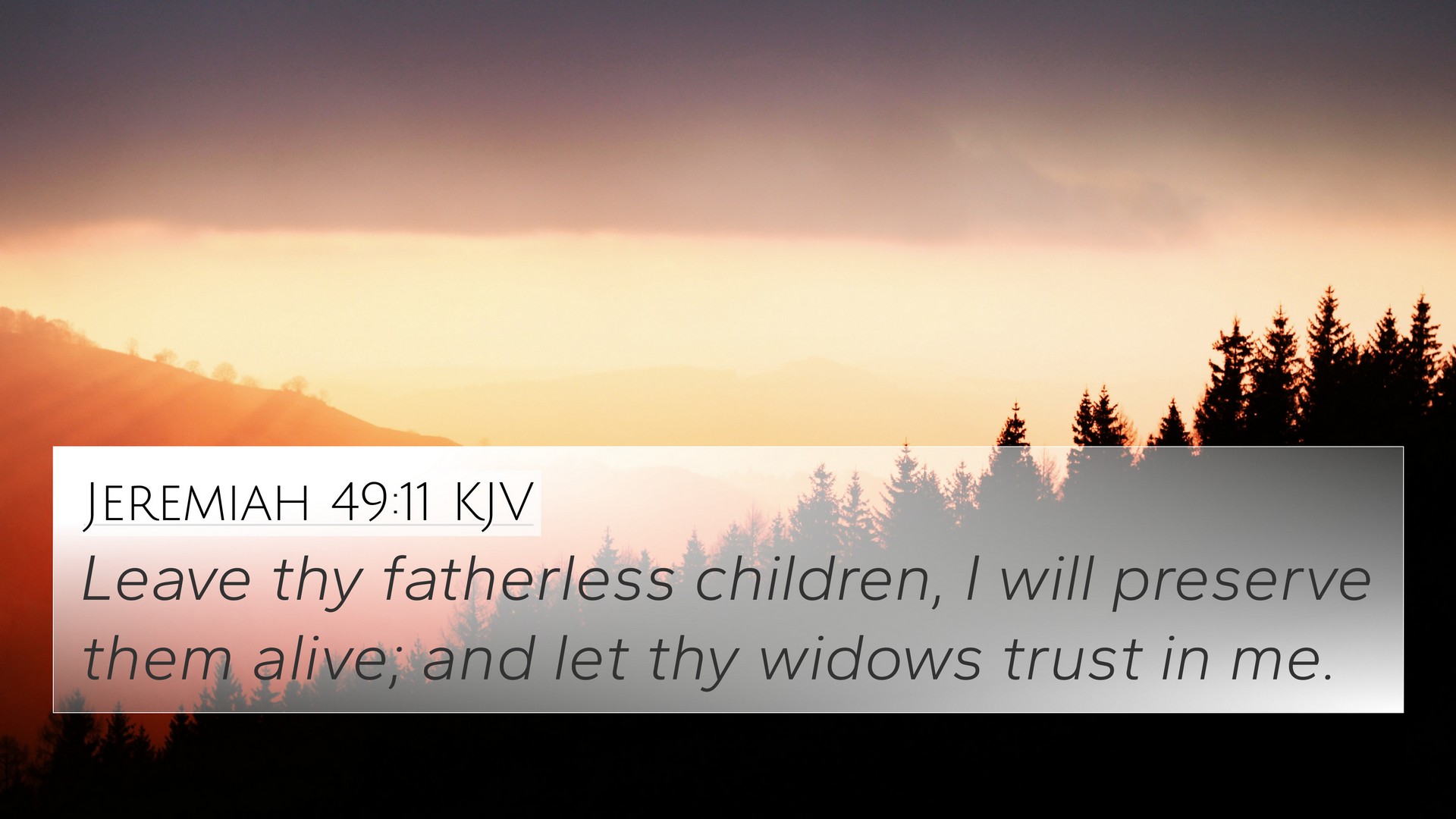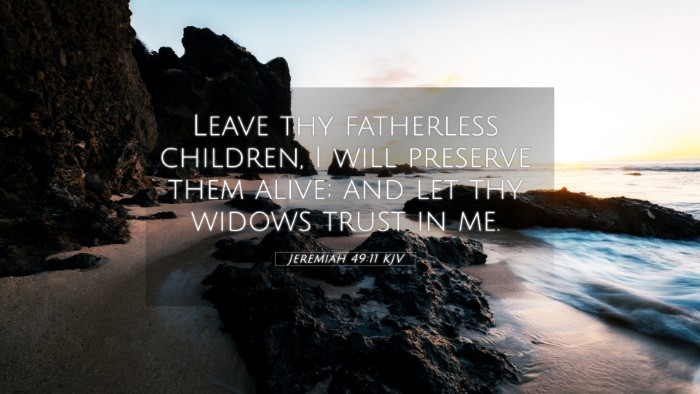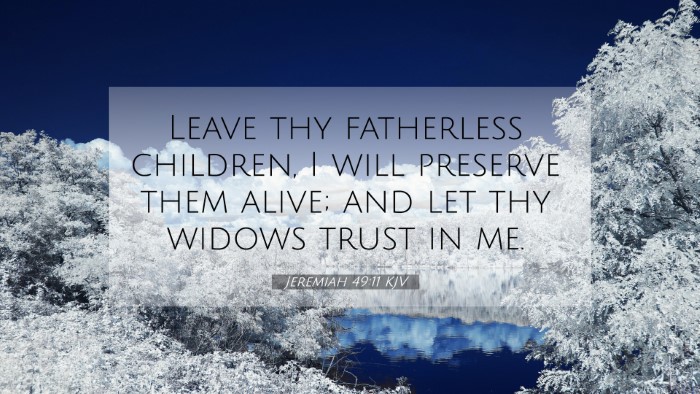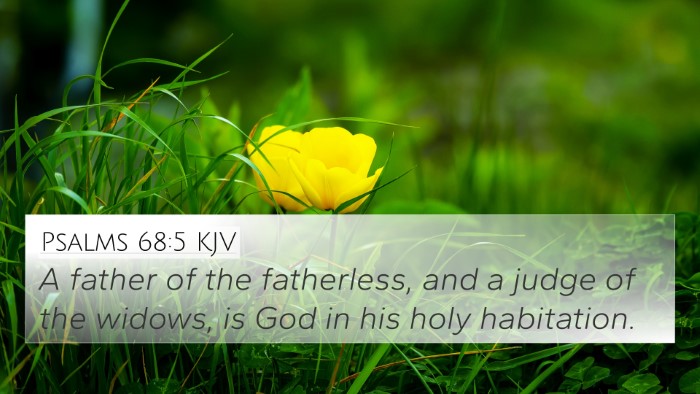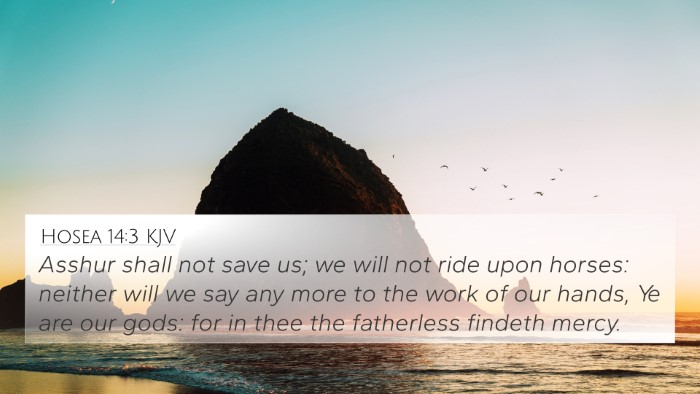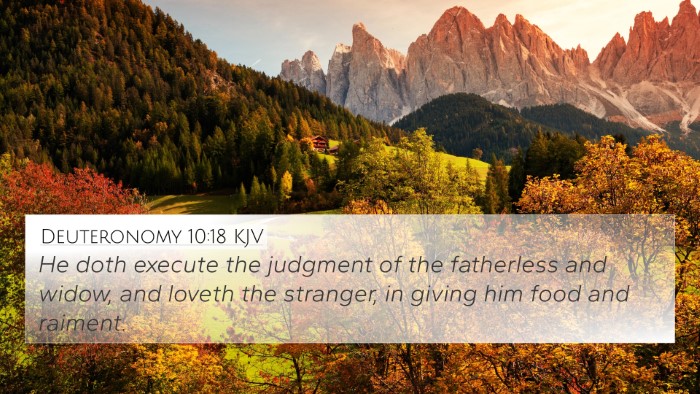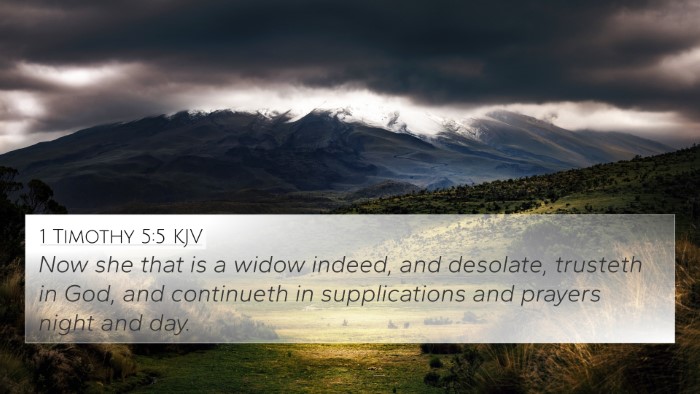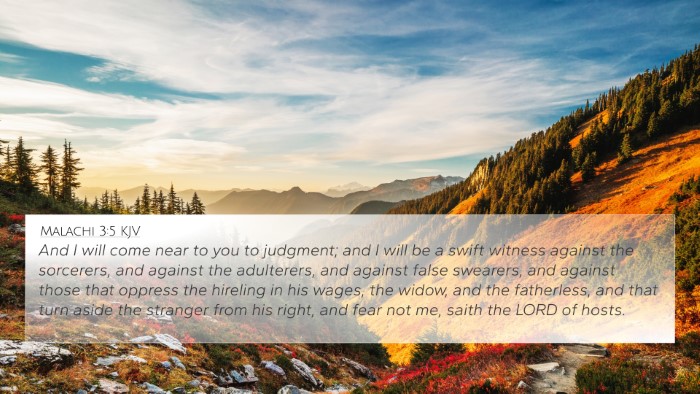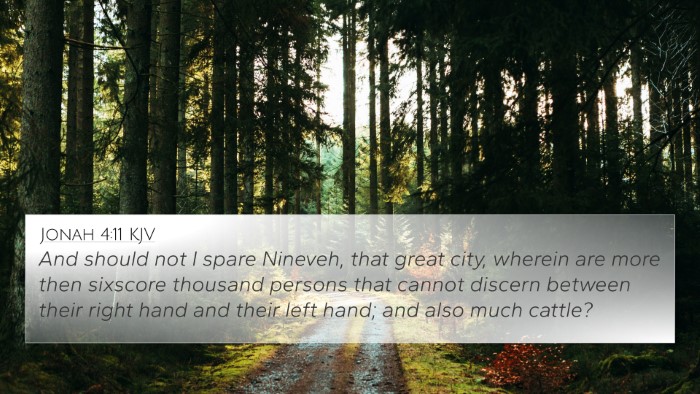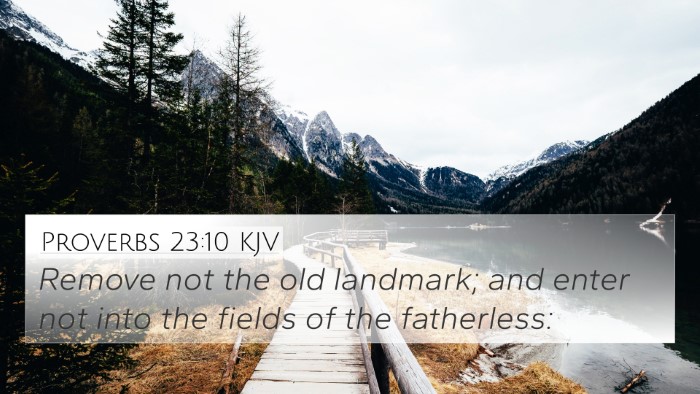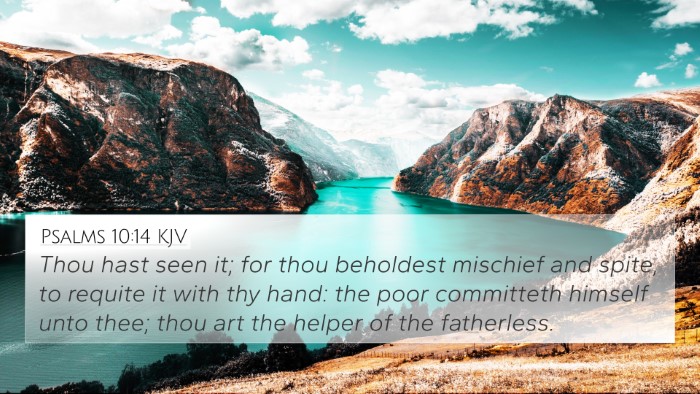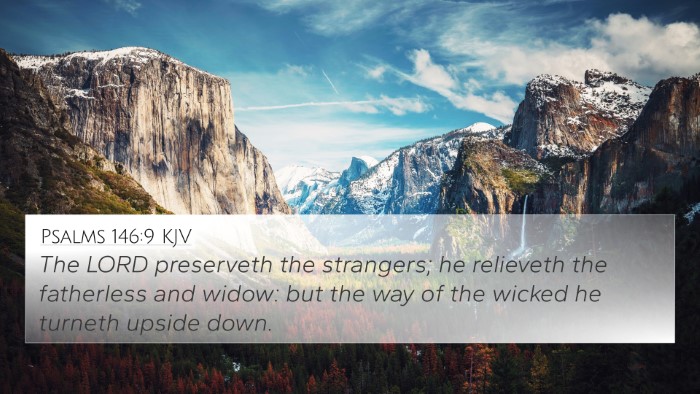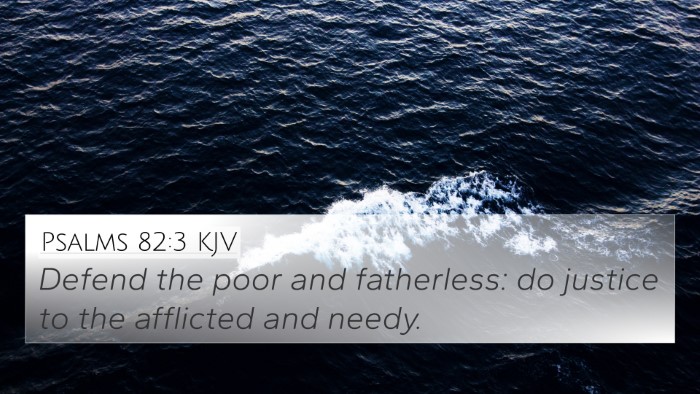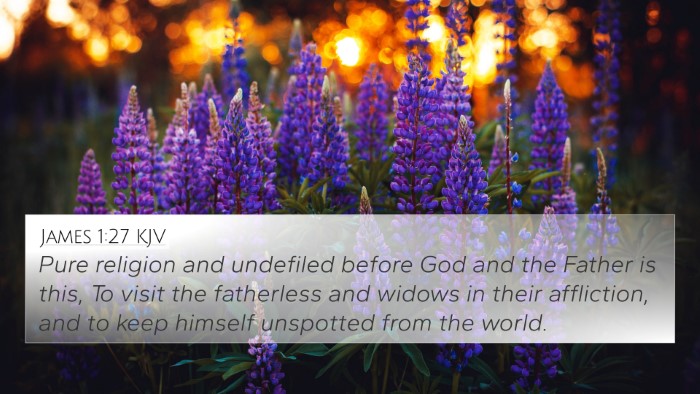Understanding Jeremiah 49:11
Jeremiah 49:11: "Leave your fatherless children; I will preserve them alive; and let your widows trust in me." This verse highlights God's compassion and protective nature towards the vulnerable.
Summary of Meaning
The verse can be understood as a comforting promise from God to those who are left behind. It bears significance for orphans and widows, representing a broader theme of God's care for the needy. God assures these individuals that even amid their distress, they can trust Him for protection and provision.
Commentary Insights
Matthew Henry's Commentary
Matthew Henry emphasizes that God invites the widows and orphans to lean on Him. In times of hardship, they can find solace in God's promise of sustenance. This also serves as a charge for the community to care for those among them who are in need rather than abandoning them.
Albert Barnes' Notes
Albert Barnes reflects on the abandonment of children being a metaphor for the helplessness and isolation that often follows destruction. He interprets the promise of preservation as an assurance of God's constant commitment to his people, particularly during times of societal upheaval.
Adam Clarke’s Commentary
Adam Clarke draws attention to the role of God as a protector of the helpless. He suggests that this passage serves not only as a promise to individuals but is also indicative of God's overarching plan for redemption and restoration for the entire nation of Israel.
Cross-References
- Psalms 68:5: "A father of the fatherless, and a judge of the widows, is God in his holy habitation." - This verse emphasizes God's care for those without familial support.
- Isaiah 1:17: "Learn to do well; seek judgment, relieve the oppressed, judge the fatherless, plead for the widow." - Illustrates the expectation for humanity to practice justice for the vulnerable.
- James 1:27: "Pure religion and undefiled before God and the Father is this, To visit the fatherless and widows in their affliction..." - Reinforces the importance of caring for orphans and widows as a reflection of true faith.
- Matthew 10:30-31: "But the very hairs of your head are all numbered. Fear ye not therefore, ye are of more value than many sparrows." - A reminder of God's intimate knowledge and concern for His people.
- Psalm 146:9: "The Lord preserves the strangers; he relieves the fatherless and widow: but the way of the wicked he turneth upside down." - Highlights God’s commitment to protecting the vulnerable.
- Lamentations 3:31-33: "For the Lord will not cast off for ever: But though he cause grief, yet will he have compassion according to the multitude of his mercies." - A reassurance of God's enduring compassion.
- Proverbs 14:31: "He that oppresseth the poor reproacheth his Maker: but he that honoureth him hath mercy on the poor." - Stresses the moral imperative to care for those in need.
- Romans 12:13: "Distributing to the necessity of saints; given to hospitality." - Encouraging acts of service and care within the community.
- Matthew 25:40: "...Inasmuch as ye have done it unto one of the least of these my brethren, ye have done it unto me." - Identifies service to the vulnerable as service to God himself.
Thematic Connections
This verse resonates deeply with the broader biblical themes of God’s justice, compassion, and protection. Throughout the scriptures, God expresses a watchful, nurturing role, particularly for those marginalized in society.
Bible Verse Connections
Jeremiah 49:11 connects with many other passages that speak to God’s character and His expectations for believers to care for the less fortunate. Mapping these connections allows for a richer understanding of the text via Bible verse cross-references, thematic Bible verse connections, and cross-referencing Biblical texts within scripture.
Cross-Referencing Resources
For those interested in deeper studies, tools like a Bible concordance or cross-reference Bible study can facilitate explorations into how themes of support, care, and divine assurance are woven throughout the Scriptures.
Conclusion
Jeremiah 49:11 serves as both a promise of God’s protection for the vulnerable and a call to His people to exhibit compassion towards those in need. By exploring cross-references and underlying themes, we can further appreciate the richness of God's character and His directives throughout the Bible.
